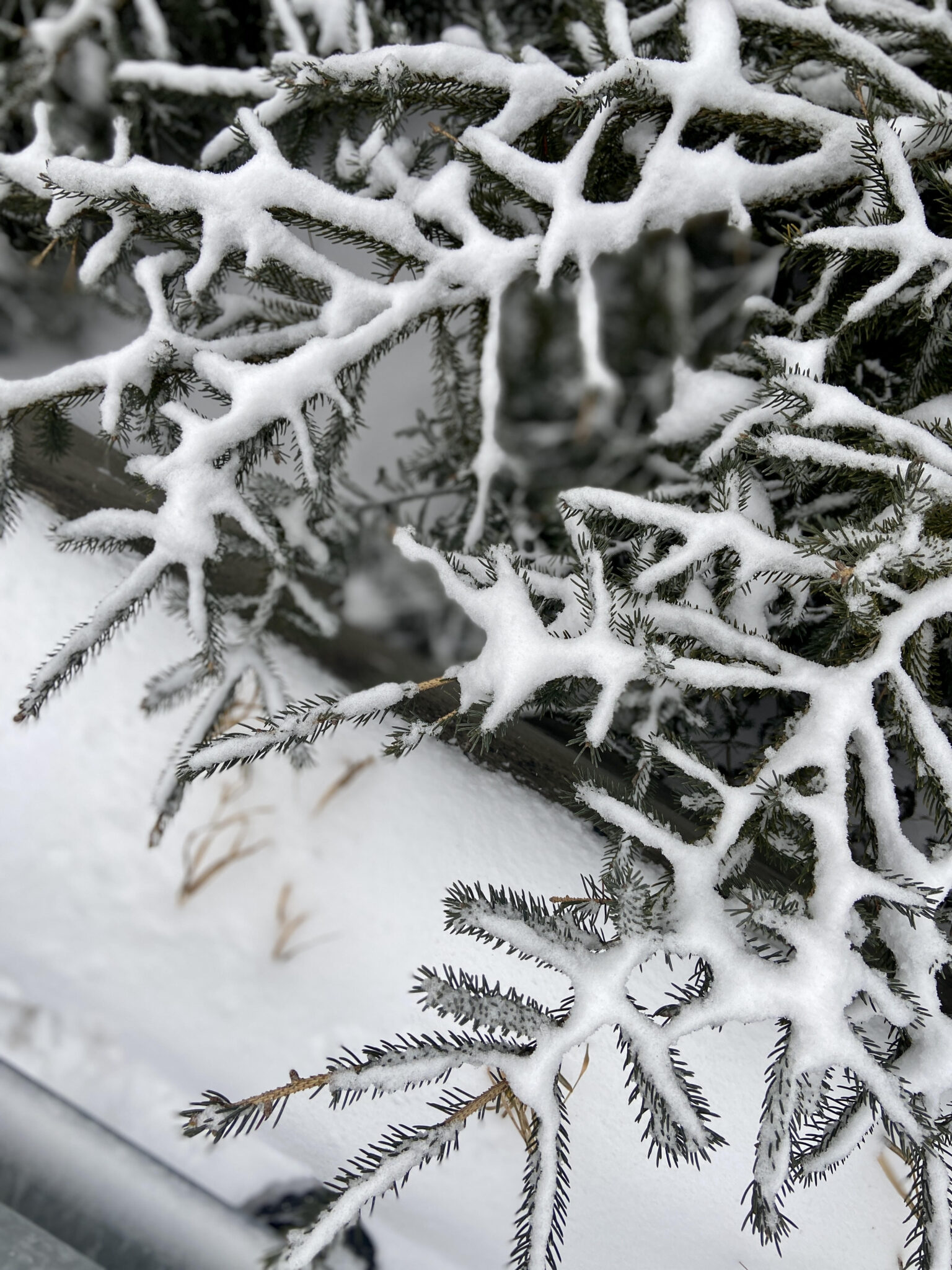Posts Tagged ‘parenting’
Making Space to Hear Them: supporting children in grief
By Alyssa Warmland
Children tend to be naturally curious as they grow and learn to navigate the world. As adults, it’s our job to walk with them through that process of learning and to support their curiosity. It can be hard to do that with respect when we are situated in cultures that don’t acknowledge children as autonomous humans worthy of mutual respect. It can be tempting to encourage kids to ignore their feelings about death and grief or to shut down conversations about it when they ask questions. Sometimes, this is because we just don’t know what to say that is developmentally appropriate, especially with young children. Sometimes, it’s because we haven’t allowed ourselves to develop our own thoughts and feelings about death and grief and it feels uncomfortable for us to talk about.
What grieving children need from adults in their lives is to feel heard, just like adults do. When a child asks questions or talks about death or grief, here are some ideas of things to say and how to prompt conversations that allow us to listen:
– Tell me more about your ideas about dying. What do you think happens after someone dies? Those are good ideas, thanks for sharing them with me. I think [insert your own cultural or family beliefs about death].
– How are you feeling about [the being the child is grieving]? Do you want to tell me about some of your favourite memories about them? It’s okay to talk about it.
– It’s okay to feel however you are feeling. It’s okay to feel scared or curious about dying. You’re not alone. Do you want to tell me more about what’s going on for you? I love you and I’m here for you.
– Death isn’t something people can control, I want to make sure you know it’s not your fault [person/animal] died. Sometimes things just are and we can’t do anything about – them, but we can talk about how we are feeling about it.
It can also help to read children’s books about grief. Even if you don’t read them with your children, they might help give you the language to talk with them about death and grief when you’re not sure what to say. Most professionals recommend using direct language, such as “death”, “dying”, and “grief”, rather than terms like “passing away”, because they are easier for children to understand.
It’s important for children to know they’re not alone in their feelings and that it’s okay to feel hard things with the adults in their lives. Humans are social creatures who crave connection. Even when it’s hard or uncomfortable, pausing our busy lives to make that time for connection with children is important so they can learn how to process grief or whatever other feelings they’re having. It can also be an opportunity to re-parent ourselves. It might help to ask ourselves why we feel uncomfortable with a topic and what our own inner child might need to hear about the feelings that come up for us about death and grief. It’s important to seek out connection and space to process those feelings too, whether that’s through therapy or with other adults we trust to be vulnerable with.
Grief literacy and emotional literacy in general is worth making space for. Children have valid feelings worth expressing and being heard it’s it’s okay to stumble, imperfectly, within those conversations with them. Being with them is what is most important.
Additional Resources:
Kid’s Grief
Kids Help Phone
Children’s Grief Foundation
Children and Youth Grief Network
Children’s Grief Colouring Book
National Alliance for Children’s Grief
Bereaved Families of Ontario
Camp Erin
The Dougy Center
Kids’ books about grief:
When Dinosaurs Die
Badger’s Parting Gifts
The Fall of Freddie the Leaf
The Invisible String
The Heart and the Bottle
Keeping Records
By Alyssa Warmland
I pulled the photos out of their envelope one at a time, turning over each one to carefully record the date, place, and people in the photo. Sometimes, I included comments. “Apple picking in Hamilton with Pop Pop, Fall, 2023. You loved the wagon ride!”. I slipped each picture into an empty pocket in my son’s photo album.
Next, I pulled out the baby book I’ve kept since before he was even earthside. I flipped to a page at the back to record an appointment, a new adventure with a forest homeschool group, and milestones.
When I tell other people my age about these rituals, they tend to share that they wish they were better about printing pictures and writing in their kids’ baby books. I’ve always enjoyed documentation, an avid journalkeeper as long as I’ve been able to write. I’ve considered this another extension of that interest. It wasn’t until earlier this week that it hit me- I keep these records so that if I die while my kid is young, he will have access to this information.
When I was 14, my mom was diagnosed with terminal cancer. I remember the day my dad picked me up from school and told me the results of the biopsy. I remember riding beside him in the passenger seat and thinking, “She’ll never meet my kids. She won’t be at my wedding. She won’t see me graduate.” All the milestones we would spend apart ran through my head. In the years since her death, I’ve consulted my baby book and read, over and over, the notes she wrote to me.
When my son was born and I became a mother, I read the notes in my book. When he started getting teeth, I turned to my (and my brother’s) books to find out when we got our teeth. I’ve looked up when we potty trained, what our sleep was like, about her breastfeeding experiences, when we started going to the dentist, and, most recently, upon learning that I was expecting another baby, what it was like when my mom brought my brother home. Not all, but some, of my questions I wish I could ask her about were answered in this record she lovingly kept.
As I write in my son’s books and caption the photos I’ve printed, I honour her, my child, and my own mother/child self. I hold space for my grief and for her memory. I continue a tradition of mothers keeping records to pick up when our babies need them.
Reflections on Mother’s Day
By Jessica Milette, MSW, RSW
The signs of spring start to show up: the bird calls, sleepy daffodils and tulips waking up from their slumber, the trees beginning to bud ready to shade us with their leaves all season. And then, the flood of Mother’s Day emails start crashing into our inboxes.
Mother’s day is a holiday where we show appreciation and care for the maternal roles in our lives. However, this holiday can feel very overwhelming for those of us who are grieving the death of a mother figure, a mother grieving their child, or those of us grieving the loss of not being able to become mothers ourselves. The ads, commercials, and displays at the store, designed to be appealing and inviting become a painful grief trigger as we go about our day, our minds and hearts going to the person we’re grieving who isn’t alive to receive their flowers or gifts. Feeling as if our grief is heightened on holidays or times of celebration is a natural reaction to have. Often around these times of the year we gather with our loved ones, and our special person’s absence feels amplified.
Over the years, my grief reactions around mother’s day continue to change. At first, it was like a black looming cloud and I would avoid anything to do with Mother’s Day. Over time, I still have had hard Mother’s Days but the day looks much different. I may write to my mother, choose to ignore the day and do things unrelated to Mother’s Day, make a comforting meal from my childhood, or participate in a memorial event on Mother’s Day. Regardless of what I choose to do, or not do on Mother’s Day I make sure to give myself the space and compassion to rest and recover – grief can be exhausting.
There is no right or wrong way to grieve, nor how to go through Mother’s Day. Our relationship as mothers and children is unique, so too will be our grief. The following ideas may be how you’d like to take time to honour the person you’re remembering and grieving on Mother’s Day:
-Unsubscribing from Mother’s Day emails (some companies have a special opt-out message for folks to unsubscribe from these types of emails)
– Ignoring Mother’s Day altogether and doing something that fills you up (it could be going to a movie your person may have never wanted to go to or taking a long hike)
– Creating an altar with photos, keepsakes, and favourite things of your person
– Lighting a candle in their honour
– Writing them a card, updating them on your life and reflecting on your relationship
– Creating a new tradition or ritual to replace Mother’s Day
– Packing your day with connection and activities with trusted others who support you in your grief
– Having a day of nothing: allowing yourself to do what your heart is telling you (a bath, a nap, a cry)
Sometimes our grief may feel heaviest in anticipation of Mother’s Day or on Mother’s Day itself. As we enter May and Mother’s Day approaches, I wish for you to be compassionate towards yourself and move through the day in the way that fits your heart and relationship best.
Grief and Parenting in the Disability Community
By Carrie Batt, Grief Educator
Parenting is complicated as it has so many twists and turns. There are a variety of parenting styles such as hovering, free and easy, and everything in between. The one thing parents have in common is the fact that parenting never ends, thought it changes. Many parents can look forward to their child changing as they age and gain independence. Parents often look forward to and are proud of their child leaving the nest. Yet for many parents with children who have developmental disabilities, that is not the case. These parents must offer unwavering support, care, and guidance to their child or children who live with disabilities.
These are parents who are relied on in various ways, being the primary caregiver and managing everything. Some parents aging into their 70s, 80s, and 90s remain the sole primary caregiver to their child. Their day-to-day parenting tasks have never ended as their child has grown into adulthood. In fact, for some, their parenting roles increase as their child ages and may begin to lose daily living skills, develop early-stage dementia, show signs of aging or illness, begin to regress in specific areas or require much more support. Some parents must also cope with the fact that their child may be experiencing mental health issues in combination with a developmental disability. This is a most unique parenting experience as it is all-consuming. Such parenting speaks to a level of commitment and unconditional love where unwavering support is a constant.
In conjunction with these realities, there are times when such parents become a part of the end-of-life and palliative care communities. Once their child with a disability is diagnosed with a life-limiting illness, the only choice is to navigate end-of-life care, and there is no road map for what these parents will be embarking on. When it comes to death, dying and disability there is no education or expertise readily available. The same is true for grief, loss, and disability. Currently there are few disability-sensitive supports for such families who are having to transition from being the primary care giver to preparing for the impending death of their child.
The grief surrounding these realities have yet to be spoken of or integrated into the bereavement services and are rarely acknowledged within the developmental sector. The same is true of the reality faced when a child with a disability must face to mortality of their parents and primary caregivers, as for many of these children they may never have left the family home.
This is a type of grief most cannot imagine. This type of grief has not yet been recognized, validated, and honoured. There has been no space made within our grief support services that speaks of the magnitude of the grief surrounding these families. My hope is that the light can shine to meet these needs in the developmental sector for the families we serve.
Maureen – “Milestones and anniversaries”
Maureen – “Milestones and anniversaries”
Maureen talks about loss and what happens over time.
Maureen – “They are still your child”
Maureen – “They are still your child”
Maureen explains how you find different ways of parenting.




